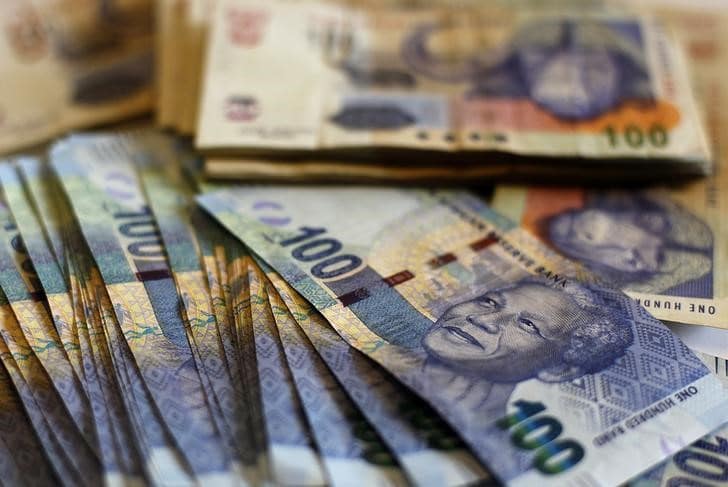
JOHANNESBURG, April 9 (Reuters) – The South African rand traded near an all-time low against the dollar on Wednesday, bruised by global risk aversion linked to U.S. President Donald Trump’s tariffs and uncertainty over the future of the country’s ruling coalition.
The rand fell as low as 19.83 to the dollar in choppy trade, not far from the weakest it has ever traded at 19.9075 in June 2023.
At 1305 GMT it was at 19.8050, down 0.2% on the day and more than 3% weaker so far this week.
“The past few trading sessions have been a wild ride, and there are no indications as yet that the volatility is about to end,” said Danny Greeff, co-head of Africa at ETM Analytics.
The South African currency is highly susceptible to shifts in financial market sentiment, which has soured badly over Trump’s global tariff war.
U.S. tariffs on dozens of countries kicked in on Wednesday, while China was hit with 104% duties. China said it will impose 84% tariffs on U.S. goods from Thursday, up from the 34% previously announced.
Another important factor behind the rand’s recent slide is local politics, which some analysts think has outweighed global developments.
The two biggest parties in the broad coalition government have disagreed sharply over the budget, with the junior partner voting against it in parliament and going to court.
Despite both parties saying on Tuesday that they are not yet walking away from the Government of National Unity (GNU), investors are still worried at the prospect that the pro-business Democratic Alliance could exit government.
“Optimism around the GNU’s ability to implement much-needed reforms is fading quickly. That being said, as more time passes with the coalition still intact, the market may begin to view current trading levels as attractive,” said Greeff at ETM Analytics.
On the Johannesburg Stock Exchange, the Top-40 index last traded down 1.8%.
The benchmark 2030 government bond also dropped, as the yield rose 10.5 basis points to 9.305%.
(Reporting by Sfundo Parakozov and Tannur Anders; Editing by Alexander Winning and Sharon Singleton)

